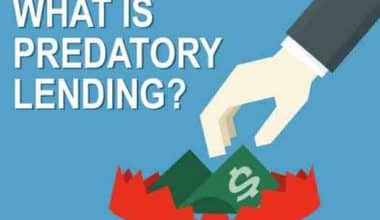If you’ve ever been in a tight spot with your business or had a great idea that needed some financial backing, you’re not alone. I’ve been there too. You have the passion, the drive, and the vision, but when it comes to finances, that’s where many dreams start to fade. That’s why the FG grant and loan can be a real game changer. Whether you’re an entrepreneur, a farmer, or just someone with a small idea, the right funding can take you from zero to a hero. And the best part? You don’t have to repay the grants!
But as exciting as it sounds, navigating the world of FG grant and loan in Nigeria can be confusing, especially with so many options and steps involved. In this guide, I’ll explore the key grants and loans offered by the Nigerian government, how to apply for them, and the importance of these FG grant and loan.
Key Points
- The Nigerian government offers grants and loans to help businesses, especially in agriculture, manufacturing, and tech. Grants don’t need repayment, and loans often have low interest.
- Businesses must research options, prepare a solid plan, register with CAC, and apply through official portals.
- Institutions like BOA, BOI, and CBN offer financial support based on the business sector.
- These funds create jobs, boost the economy, encourage innovation, and reduce poverty, especially in rural areas.
Why Should You Consider FG Grant and Loan?

So, why go for these government grants and loans? Well, let’s be honest—sometimes, traditional bank loans can feel like a huge hurdle with their stringent requirements and high interest rates. That’s where FG loan and grant come in handy. They offer:
- No collateral (for most programs): Unlike traditional loans that require collateral, many FG loans and grants do not.
- Low or No Interest Rates: Many FG loans come with incredibly low interest rates and grants. Well, those don’t even need to be repaid.
- Access to Huge Sums: Some grants and loans offer millions in funding, which can give your business the push it needs to expand.
- Government Support: When the government is backing your business, it gives you credibility and access to networks you might not have otherwise.
Funding and Types of Loans Available Through the Federal Government of Nigeria
You know, running a business in Nigeria can be tough. Whether you’re into agriculture, tech, or something in between, finding the right funding is often the hardest part. But thankfully, the Nigerian government has some great loan programs that are designed to help people. like us—entrepreneurs with dreams bigger than our bank accounts! Let me break down some of the key options available from different government institutions, so you know exactly where to look when you’re in need of financial backing.
#1. Bank of Agriculture (BOA)
If you’re in the farming business or into agribusiness, the Bank of Agriculture (BOA) is your go-to. This government-backed bank is all about providing credit and other forms of funding to farmers. Whether you’re starting out or trying to expand, they’ve got you covered with a variety of financial products.
Some of the BOA’s key products include:
- Agro-Processing Facility: For anyone in the business of turning raw agricultural products into market-ready goods.
- Direct Credit Product: Straightforward loans for agricultural purposes.
- Grow and Earn More (GEM): A program designed to increase agricultural yields.
- Youth Agricultural Revolution in Nigeria (YARN): Aimed at getting young people involved in the agriculture space with financial support.
#2. Bank of Industry (BOI)
Now, if you’re more into manufacturing, ICT, or even the creative arts, the Bank of Industry (BOI) is where you want to look. The BOI focuses on long-term financing to help industries grow and innovate. They have something for just about everyone, whether you’re making cassava bread or launching a new fashion line.
Here are some of the cool programs BOI offers:
- Nollyfund: If you’re in the film industry, this fund could help you get your next big project off the ground.
- Graduate Entrepreneurship Fund: Fresh out of school and have a business idea? BOI has got your back with this fund.
- Youth Entrepreneurship Support (Yes) Program: For young business minds looking to expand.
#3. Central Bank of Nigeria (CBN)
The Central Bank of Nigeria (CBN) isn’t just about controlling inflation and regulating banks; it also has a range of development finance programs for businesses. Whether you’re into farming, healthcare, or the creative industry, there’s something here for you.
Some of the CBN’s most popular products include:
- Anchor Borrower’s Programme (ABP): Aimed at smallholder farmers, providing them with the financial support they need to increase production.
- Commercial Agriculture Credit Scheme (CACS): For large-scale farming businesses.
- Creative Industry Financing Initiative: Great for filmmakers, fashion designers, and tech entrepreneurs looking for financial backing.
#4. Development Bank of Nigeria (DBN)
The Development Bank of Nigeria (DBN) is all about helping micro, small, and medium enterprises (MSMEs) grow. They don’t lend directly to businesses but instead work through partner banks and microfinance institutions to get funding for you.
Some DBN services include:
- Wholesale lending: DBN partners with commercial banks to offer loans to MSMEs.
- Partial credit risk guarantees: To help businesses that may not have access to collateral.
- Capacity building: Through their Entrepreneurship Training Program, they offer the training you need to manage your business finances effectively.
#5. Nigerian Export-Import Bank (NEXIM)
For businesses that are into exporting, the Nigerian Export-Import Bank (NEXIM) is there to help. They specialize in giving financial support to companies looking to export their goods and services out of Nigeria.
NEXIM offers:
- Direct Lending Facility: A straightforward loan for export activities.
- Export Credit Insurance Facility: Protect your business against the risks associated with exporting.
- Women and Youth Export Facility (WAYEF): Supporting women and young entrepreneurs in export-related fields.
#6. Small and Medium Enterprises Development Agency of Nigeria (SMEDAN)
Finally, there’s SMEDAN, which is tasked with helping MSMEs thrive in Nigeria. Besides offering capacity building and training, SMEDAN also helps small businesses gain access to credit and funding opportunities.
Some of their programs include:
- Conditional Grant Scheme (CGS): Financial empowerment for MSMEs across the country.
- One-Local Government-One-Product (OLOP): Helping small businesses in local governments with specialized products get the funding they need.
- Young Business Owners in Nigeria (Y-BON): focused on empowering young entrepreneurs with grants and loans.
If you’re running a small business and need both mentorship and funding, SMEDAN could be your best friend. They’re dedicated to creating an environment where MSMEs can thrive, with a range of support programs to match.
Qualifying for a Federal Government of Nigeria Loan
Thinking about applying for a federal government loan? Good news—whether you already have a business or you’re just starting one, you’re eligible to apply! These loans are designed to give entrepreneurs in Nigeria the financial push they need to succeed.
Now, depending on the loan you’re eyeing, your business might not have to be registered with the Corporate Affairs Commission (CAC) to qualify. But, in many cases, if your business isn’t registered yet, you’ll probably need to register as part of the loan process. It’s not as complicated as it sounds, and it’s a step that opens doors to a lot more funding opportunities down the line.
Some businesses, especially those in specific industries like food or exports, may also need to be registered with agencies like NAFDAC, the Nigerian Export Promotion Council (NEPC), or the Standards Organization of Nigeria (SON). These registrations ensure that your business meets national standards and regulations, giving you an extra layer of credibility.
Both limited liability companies and registered business names are eligible for federal government loans. But here’s the catch—if you’re running a limited company, you can typically apply for much larger sums of money. So, if you’re looking to scale, that could be something to consider.
Some loan programs require your business to have a bit of history. In other words, they want to see that you’ve been operating for a while. But don’t worry if you’re just starting out; there are plenty of programs geared toward startups that don’t require any trading history.
Here is a FREE Eligibility Criteria Checklist for FG Grant and Loan:
FREE PDF
How to Apply for a Federal Government Loan and Grants
Applying for a government loan might sound daunting, but it’s all about doing your homework. First, you need to find a loan product that not only fits your business needs but one you actually qualify for.
Since most loans are managed by specific government agencies, you’ll either apply directly through the agency or go through a participating commercial bank. While some applications can be done online, many still require you to visit an office or bank branch to submit in person.
The agency will assess your business and the purpose of the loan according to their specific guidelines. If everything checks out, you’ll get an approval letter outlining the terms, and then the funds will be advanced to you.
Regardless of which agency or credit facility you’re applying to, here’s a checklist of some documents you might need while applying for FG grant and loan:
- Completed application form
- Company profile
- Business plan
- Cash flow budget
- 12 months of bank statements
- Audited financial accounts (if available)
- Certificate of Incorporation
- Valid ID (driver’s license, passport, voter’s card)
- Proof of address
- Details of collateral
The Impact of Government Grants and Loans on Nigerian Businesses
Government grants and loans have had a transformative impact on businesses across Nigeria. Here are some ways in which these financial support systems have helped Nigerian entrepreneurs:
#1. Job Creation
One of the biggest benefits of government-backed funding is that it helps entrepreneurs create jobs. By providing capital to small and medium-sized businesses, the government empowers them to hire more workers, contributing to Nigeria’s overall employment rate.
#2. Economic Growth
Small businesses are the backbone of the Nigerian economy, and by supporting them, the government is stimulating economic growth. Businesses that receive funding can expand their operations, produce more goods and services, and contribute to the country’s GDP.
#3. Boosting Innovation
Grants and loans often go to entrepreneurs who are working on innovative solutions to some of Nigeria’s biggest challenges. Whether it’s developing new agricultural techniques, creating tech-based solutions, or launching eco-friendly products, government funding has helped Nigerian entrepreneurs turn their creative ideas into real businesses.
#4. Reducing Poverty
Many government grants and loans are targeted at businesses in rural areas or industries like agriculture that have a direct impact on reducing poverty. By providing financial support to small farmers and rural entrepreneurs, the government is helping to lift people out of poverty and improve their quality of life.
Challenges You Might Face While Applying
Of course, it’s not always smooth sailing when it comes to getting FG loans or grants. Here are some challenges to be aware of:
- Bureaucracy: Government programs can be slow and come with lots of paperwork.
- Eligibility: Not everyone qualifies for every program. Some have strict criteria, so be sure you meet the requirements.
- Competition: These grants and loans are popular, so expect stiff competition. The earlier you apply, the better your chances.
Is the Federal Government Giving a Palliative Grant in 2024?
N200 Billion Palliative Grant Disbursement Begins in Nigeria in April 2024. In good news for Nigerian businesses, the government has finally started disbursing funds from the N200 billion Presidential Conditional Grant Scheme.
What Is the 50,000 Naira FG Grant?
The N50,000.00 (Fifty Thousand Naira) grant per beneficiary paid directly to beneficiaries’ accounts will reach one million small businesses in the 774 local government areas (LGAs) and the six council areas in the Federal Capital Territory (FCT).
Is Theobart Grant Real?
This is a scam. First, no one needs to pay money to receive a grant. A grant is money given by the government or some organization to a particular individual, group of people, or another organization for a particular purpose.
Conclusion
Whether you’re farming, exporting, or innovating in the creative space, the Nigerian government has a lot of loan and grant options to help your business grow. From the Bank of Agriculture to the Development Bank of Nigeria, each institution has its own focus, so make sure you’re applying for the right one based on your business needs. Getting access to these funds could be the key to taking your business to the next level. Keep your eye on the eligibility criteria, and make sure you’ve got a solid business plan in hand.
- Navigating the World of No Credit Check Loans: A Guide to Legitimate Options
- Farm Grants for Females: All You Should Know
- 2023 Agriculture Loan List, Updated!!!(13 + Application guide)
- 2023 Detailed List Of Top Agriculture Grants for Farmers (Updated!!!)






